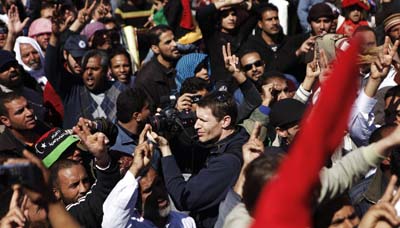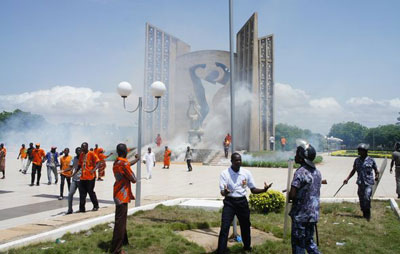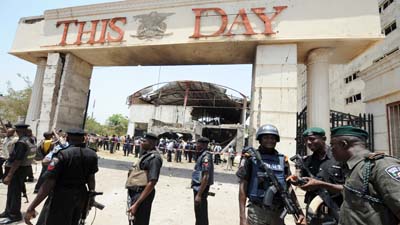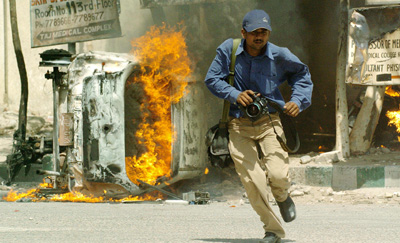Africa
2012

Assisting journalists forced to flee censorship
CPJ’s Journalist Assistance Program supports journalists who cannot be helped by advocacy alone. In 2011, we assisted 171 journalists worldwide. Almost a fourth came from countries that made CPJ’s Most Censored list. Eight journalists from Eritrea, five from Syria, six from Cuba, and a whopping 20 from Iran sought our help after being forced to…

For conflict journalists, a need for first-aid training
Stop the bleeding. It’s a critical and fundamental step in aiding a journalist or anyone wounded in conflict. Hemorrhage is the number one preventable death on the battlefield. And yet large numbers of journalists covering wars and political unrest all across the world are untrained in this life-saving skill. It doesn’t need to be that…

In Togo, police assault journalists, confiscate equipment
New York, April 30, 2012–Togolese police attacked and confiscated the equipment of two journalists filming an anti-government march in the capital, Lomé, on Friday. Civil society activists and human rights advocates had gathered for the demonstration on the occasion of Togo’s 52nd Independence Day, local journalists said.

Liberian journalist Mae Azango on cold threats, hot stories
Mae Azango was not surprised when the Liberian police failed to help when she began receiving threats of violence in response to an article she had written about female genital cutting that was published on in FrontPage Africa on March 8. She had previously reported critically on the police, including a case of police brutality…

CPJ condemns attacks on newspaper offices in Nigeria
New York, April 26, 2012–The Committee to Protect Journalists condemns bombings today targeting two of the offices of ThisDay newspaper in Nigeria. At least nine people were killed and more than a dozen wounded in the attacks, for which the Islamist militant sect Boko Haram claimed responsibility, according to news reports.

Why journalists need new ways to stay safe
After the Salvadoran online newsmagazine El Faro exposed a secret government deal with criminal gangs last month, its staff faced repercussions that illustrate the new and complicated risks facing journalists worldwide. El Faro’s report, which said the government provided more lenient treatment of imprisoned gangsters in exchange for the groups’ agreement to slow down their…
Internet giants submit to external free expression scrutiny
Journalists and bloggers in authoritarian countries have their work cut out thwarting governments that try to restrict their writing and reporting. The last thing they need to worry about is the provider of their publication platform helping authorities with censorship or surveillance. Cue the Global Network Initiative (GNI), a voluntary grouping of Internet companies, freedom…
Video: Getting Away With Murder
CPJ’s María Salazar-Ferro names the 12 countries where journalists are murdered regularly and governments fail to solve the crimes. Where are leaders failing to uphold the law? Where are conditions getting better? And where is free expression in danger? (4:46) Read CPJ’s 2012 Impunity Index. And visit our Global Campaign Against Impunity and see how…
